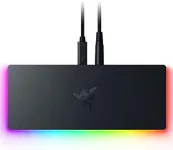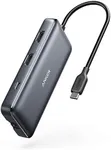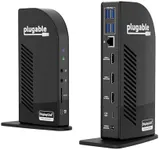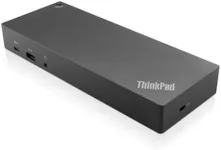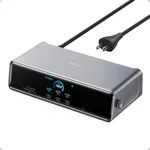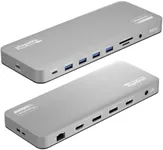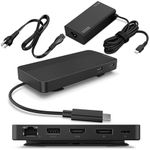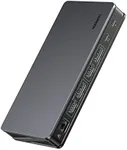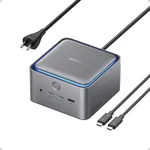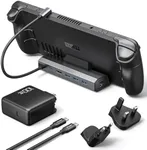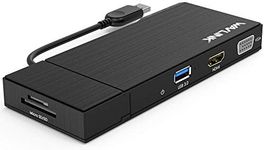Buying Guide for the Best Gaming Docking Station
Choosing the right gaming docking station can significantly enhance your gaming experience by providing additional ports, better connectivity, and improved performance. A docking station allows you to connect multiple peripherals to your gaming laptop or console, making it easier to switch between different devices and ensuring a seamless gaming setup. To make an informed decision, you need to consider several key specifications that will determine how well the docking station meets your gaming needs.Port AvailabilityPort availability refers to the number and types of ports that the docking station offers. This is important because it determines how many and what kind of devices you can connect simultaneously. Common ports include USB-A, USB-C, HDMI, DisplayPort, Ethernet, and audio jacks. If you have multiple peripherals like a mouse, keyboard, external hard drive, and multiple monitors, you'll need a docking station with a variety of ports. For basic setups, a docking station with a few USB ports and an HDMI port might suffice. For more complex setups, look for a docking station with a wide range of ports to accommodate all your devices.
Power DeliveryPower delivery refers to the docking station's ability to charge your laptop or other devices while they are connected. This is crucial for maintaining uninterrupted gaming sessions, especially if your laptop's battery life is limited. Power delivery is measured in watts (W), and higher wattage means faster charging. For most gaming laptops, a docking station with at least 60W of power delivery is recommended. If you have a high-performance gaming laptop, you might need a docking station that offers 85W or more to ensure it stays charged during intense gaming sessions.
Display SupportDisplay support indicates the docking station's ability to connect to external monitors and the maximum resolution and refresh rate it can handle. This is important for gamers who want to use multiple monitors or high-resolution displays for an immersive experience. Look for docking stations that support at least 1080p resolution at 60Hz for basic gaming. For a more advanced setup, consider docking stations that support 4K resolution at 60Hz or even higher refresh rates if you have a high-end monitor. Ensure the docking station has the necessary ports like HDMI or DisplayPort to connect to your monitors.
CompatibilityCompatibility refers to whether the docking station is compatible with your gaming laptop or console. This is crucial because not all docking stations work with every device. Check the manufacturer's specifications to ensure the docking station supports your specific laptop or console model. Some docking stations are designed specifically for certain brands or operating systems, so make sure it matches your setup. Universal docking stations offer broader compatibility but may lack some specialized features.
Build Quality and DesignBuild quality and design refer to the physical construction and aesthetic of the docking station. This is important for durability and how well it fits into your gaming setup. A well-built docking station made from high-quality materials will last longer and withstand the wear and tear of frequent use. Consider the size and design of the docking station to ensure it fits comfortably on your desk and matches your gaming setup's aesthetics. Some docking stations also offer additional features like RGB lighting, which can enhance the visual appeal of your gaming station.
Network ConnectivityNetwork connectivity refers to the docking station's ability to provide a stable and fast internet connection. This is crucial for online gaming, where a reliable connection can make the difference between winning and losing. Look for docking stations with an Ethernet port for a wired connection, which is generally more stable and faster than Wi-Fi. If you rely on Wi-Fi, ensure the docking station supports the latest Wi-Fi standards for the best performance. A docking station with advanced network features can help reduce latency and improve your overall gaming experience.
